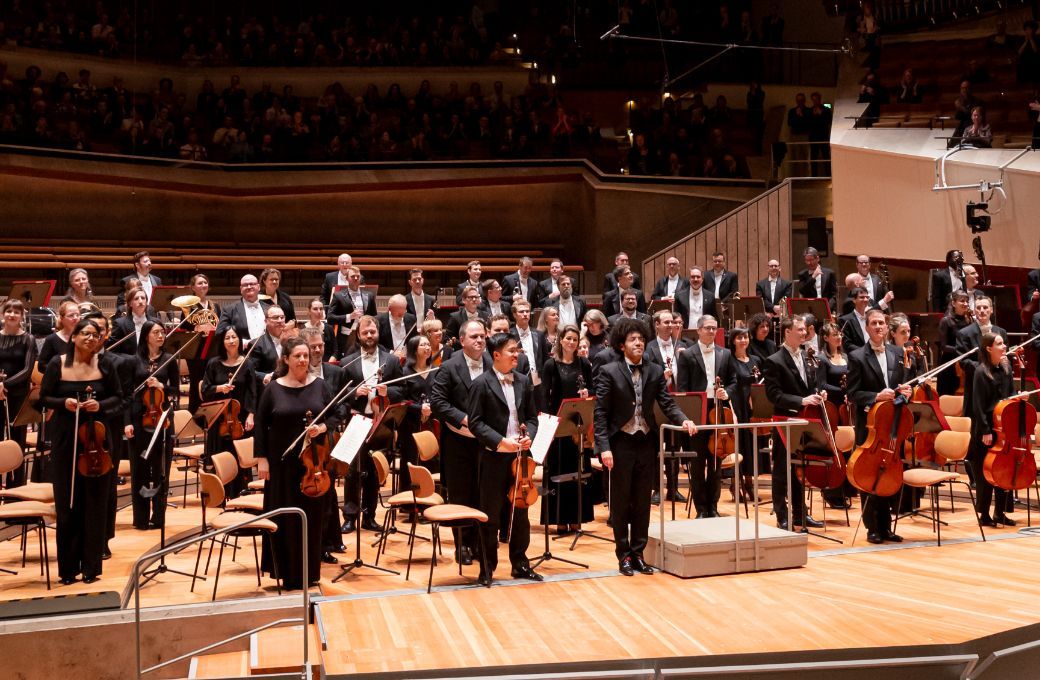What’s better than a warm cup of tea to get through the long evenings of a cold winter? Possibly, an all-Romantic concert led by Venezuelan conductor Rafael Payare, whose European tour with the Orchestre symphonique de Montréal reached Berlin. As the OSM’s Music Director, Payare came to the Philharmonie with a crackling programme where two works by Berlioz – Le Carnaval romain and the Symphonie fantastique – surrounded Schumann’s Piano Concerto. At the piano was none other than Daniil Trifonov, who has joined the OSM for part of their tour.

With its rich instrumentation and immediate melodic appeal, the Carnaval romain was a good warm-up for orchestra and audience alike. The Andante sostenuto, opening with solo cor anglais accompanied by string pizzicato, proceeded undisturbed in its operatic flair. Soon enough though, a short section with fast scales in the woodwinds introduced the Allegro vivace in 6/8, where Payare whipped up an orchestral whirlwind that grew more and more exhilarating. Speedy tempi and full dynamics evoked the uninhibited, rowdy atmosphere of a carnival, with Payare himself bouncing on the podium.
Just as any carnival is short-lived, the festive craze came to a (temporary) stop with Schumann’s concerto. Here, Trifonov took the lead, shifting the tone of the evening. The orchestra, already reduced in size, contributed to a performance defined by composure and concentration. Trifonov seemed to be completely immersed in the score, creating an aura of intimacy that contrasted with Payare’s extrovert attitude in the Berlioz overture. The main theme of the first movement, introduced by the oboe, was absorbed by the piano and made into the object of the soloist’s musings.
In homophonic moments, Trifonov let his right hand sing like any singer would in a Schumann Lied, while running the left hand on the keyboard for a smooth, buttery accompaniment. When, instead, the part was complicated by internal polyphony, each voice would rise to equal status in a dense texture. Soloist and conductor always maintained a dynamic balance, with magical effects in moments such as the dialogue between piano and cellos in the Intermezzo. Eventually, the third movement gave Trifonov the chance to break into showier virtuosity, with fast and agile sections that crowned the trajectory of the concerto.
Alone again with his orchestra, Rafael Payare embarked on the surreal journey that is the Symphonie fantastique. If, like Bernstein said, this really is Berlioz “taking a trip”, Payare took that to heart; his approach was extravagant and somewhat unserious – which made the performance, for the most part, very amusing. After a restrained, expectant start, the score opened up to a range of malleable dynamics and tempi, occasionally risking misalignments within the ensemble but generally holding together. Sometimes one had the feeling that Payare wanted every instrument to be heard, producing a full, but not always clear sound. In this sense, the tutti sections of the score proved more convincing that the solos, although the close of the third movement, with the cor anglais and percussion, retained its lingering charm.
Payare was in his element during the last two movements. The brassy march was dark and sharp at once, with a marked rhythmic pulse that made everything sound theatrical and almost parodic. Both conductor and orchestra had a lot of fun with Berlioz’s timbres, turning outright grotesque in the Witches' Sabbath, finishing it with devilish jubilation.
This concert was presented by Konzertdirektion Hans Adler


